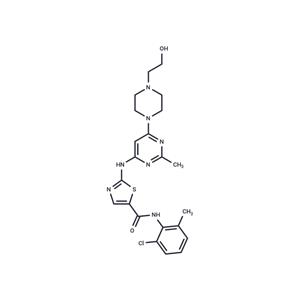
Dasatinib NEW
| Price | $37 | $53 | $63 |
| Package | 50mg | 100mg | 200mg |
| Min. Order: | |
| Supply Ability: | 10g |
| Update Time: | 2024-11-19 |
Product Details
| Product Name: Dasatinib | CAS No.: 302962-49-8 |
| Purity: 99.89% | Supply Ability: 10g |
| Release date: 2024/11/19 |
Product Introduction
Bioactivity
| Name | Dasatinib |
| Description | Dasatinib (BMS-354825) is an orally active, ATP-competitive tyrosine kinase inhibitor that targets Src and Bcr-Abl (Ki=16/30 pM), with antitumor activity, used in the treatment of leukemia and lymphoma. |
| Cell Research | Ba/F3 cell lines were plated in triplicate and incubated with escalating concentrations of imatinib, AMN107, or BMS-354825 for 72 hours. Proliferation was measured using a methanethiosulfonate-based viability assay. IC50 and IC90 values are reported as the mean of three independent experiments done in quadruplicate. The inhibitor concentration ranges for IC50 and IC90 determinations were 0 to 2,000 nmol/L (imatinib and AMN107) or 0 to 32 nmol/L (BMS-354825). The imatinib concentration range was extended to 6,400 nmol/L for mutants with IC50 >2,000 nmol/L. The BMS-354825 concentration range was extended to 200 nmol/L for mutant T315I [1]. |
| Kinase Assay | Kinase assays using wild-type and mutant glutathione S-transferase (GST)–Abl fusion proteins (c-Abl amino acids 220-498) were done as described, with minor alterations. GST-Abl fusion proteins were released from glutathione-Sepharose beads before use; the concentration of ATP was 5 μmol/L. Immediately before use in kinase autophosphorylation and in vitro peptide substrate phosphorylation assays, GST-Abl kinase domain fusion proteins were treated with LAR tyrosine phosphatase according to the manufacturer's instructions. After 1-hour incubation at 30°C, LAR phosphatase was inactivated by addition of sodium vanadate (1 mmol/L). Immunoblot analysis comparing untreated GST-Abl kinase to dephosphorylated GST-Abl kinase was routinely done using phosphotyrosine-specific antibody 4G10 to confirm complete (>95%) dephosphorylation of tyrosine residues and c-Abl antibody CST 2862 to confirm equal loading of GST-Abl kinase. The inhibitor concentration ranges for IC50 determinations were 0 to 5,000 nmol/L (imatinib and AMN107) or 0 to 32 nmol/L (BMS-354825). The BMS-354825 concentration range was extended to 1,000 nmol/L for mutant T315I. These same inhibitor concentrations were used for the in vitro peptide substrate phosphorylation assays. The three inhibitors were tested over these same concentration ranges against GST-Src kinase and GST-Lyn kinase [1]. |
| Animal Research | For in vivo studies, dasatinib (50 mg/kg) was prepared for daily oral gavage (5 d/wk) in 80 mmol/L sodium citrate buffer, pH 3.0. For the orthotopic murine model, mice were randomized on day 10 based on bioluminescence activity to receive drug or vehicle. In the metastatic murine model, mice received dasatinib or vehicle, as described earlier, starting 2 days before intracardiac injection (pretreatment), or on day 11 following randomization (posttreatment) [4]. |
| In vitro | METHODS: Eight thyroid cancer cells were treated with Dasatinib (0.019-1.25 μmol/L) for 3 days, and cell proliferation was detected by SRB. RESULTS: The IC50 of Dasatinib on C643, TPC1, BCPAP, SW1736, K1, 8505C, HTh74 and HTh7 cells were 0.09, 0.03, 0.04, 0.08, 0.4, 2.7, >5 and 1.6 μmol/L, respectively.[1] METHODS: Human lung cancer cells NCI-H1975 and NCI-H1650 were treated with Dasatinib (2.5-20 μM) for 48 h. Apoptosis was detected by Flow Cytometry. RESULTS: Dasatinib induced apoptosis in NCI-H1975 and NCI-H1650 cells at 10 and 20 μM. [2] |
| In vivo | METHODS: To test the antitumor activity in vivo, Dasatinib (50 mg/kg in 80 mmol/L sodium citrate buffer, pH 3.0) was administered orally to athymic nude mice harboring human thyroid carcinoma tumors of BCPAP or 8505C, five days per week for 20 days. RESULTS: Dasatinib significantly inhibited BCPAP tumors in situ, with final tumor volume suppressed by more than 90%. Dasatinib treatment did not significantly inhibit the growth of 8505C-derived tumors at any time point. [1] METHODS: To investigate the effects on neuroinflammation, Dasatinib (20 mg/kg in 4%DMSO+30%PEG+5%Tween 80) was administered intraperitoneally or orally to C57BL6/N mice once daily for four days, followed by intraperitoneal injection of LPS (10 mg/kg) to induce neuroinflammatory responses in vivo. RESULTS: Intraperitoneal injection and oral administration of Dasatinib inhibited LPS-induced activation of microglia/astrocytes, pro-inflammatory cytokine levels, and neutrophil rolling in the brains of wild-type mice. [3] |
| Storage | Powder: -20°C for 3 years | In solvent: -80°C for 1 year | Shipping with blue ice. |
| Solubility Information | H2O : < 1 mg/mL (insoluble or slightly soluble) Ethanol : < 1 mg/mL (insoluble or slightly soluble) 10% DMSO+40% PEG300+5% Tween 80+45% Saline : 9.1 mg/mL (18.65 mM), Suspension. Please add co-solvents sequentially, clarifying the solution as much as possible before adding the next one. Dissolve by heating and/or sonication if necessary. Working solution is recommended to be prepared and used immediately. DMSO : 55 mg/mL (112.7 mM) |
| Keywords | active | antiproliferative | CML | antitumor | breast | Inhibitor | prostate | Bcr-Abl | Autophagy | BMS354825 | Apoptosis | colon | K562 | WiDr | PC3 | orally | BMS 354825 | inhibit | Dasatinib | Src |
| Inhibitors Related | Stavudine | Sodium 4-phenylbutyrate | L-Ascorbic acid | Hydroxychloroquine | Guanidine hydrochloride | Tributyrin | Paeonol | Naringin |
| Related Compound Libraries | Anti-Neurodegenerative Disease Compound Library | Bioactive Compound Library | Tyrosine Kinase Inhibitor Library | EMA Approved Drug Library | Anti-Cancer Clinical Compound Library | Inhibitor Library | FDA-Approved Kinase Inhibitor Library | FDA-Approved Drug Library | Anti-Cancer Approved Drug Library | Anti-Aging Compound Library |
Company Profile Introduction
Target Molecule Corp. (TargetMol) is a global high-tech enterprise, headquartered in Boston, MA, specializing in chemical and biological research product and service to meet the research needs of global customers.
TargetMol has evolved into one of the biggest global compound library and small molecule suppliers and a customer based on 40+ countries. TargetMol offers over 80 types of compound libraries and a wide range of high-quality research chemicals including inhibitors, activator, natural compounds, peptides, inhibitory antibodies, and novel life-science kits, for laboratory and scientific use. Besides, virtual screening service is also available for customers who would like to conduct the computer-aided drug discovery.
You may like
Recommended supplier
| Product name | Price | Suppliers | Update time | |
|---|---|---|---|---|
| $150.00/1kg |
VIP1Y
|
Hebei Zhuanglai Chemical Trading Co Ltd
|
2024-12-25 | |
| $37.00/50mg |
VIP5Y
|
TargetMol Chemicals Inc.
|
2024-11-19 | |
| $5.00/1KG |
VIP4Y
|
Hebei Chuanghai Biotechnology Co,.LTD
|
2024-08-21 | |
| $25.00/10mg |
VIP2Y
|
Zibo Hangyu Biotechnology Development Co., Ltd
|
2024-07-10 | |
| $0.00/1kg |
VIP1Y
|
Shaanxi TNJONE Pharmaceutical Co., Ltd
|
2024-05-13 | |
| $0.00/1kg |
Nanjing Fred Technology Co., Ltd
|
2023-12-20 | ||
| $0.00/1kg |
VIP2Y
|
SHANDONG BOYUAN PHARMACEUTICAL CO., LTD.
|
2023-09-07 | |
| $450.00/1kg |
Henan Bao Enluo International TradeCo.,LTD
|
2023-06-20 | ||
| $0.00/10KG |
VIP2Y
|
Hefei TianRui Pharmaceutical Chemical Co., Ltd.
|
2023-04-17 | |
| $500.00/1KG |
Weijer International Trade (Hebei) Co., Ltd
|
2023-03-14 |
- Since: 2011-01-07
- Address: 36?Washington?Street, Wellesley?Hills
INQUIRY



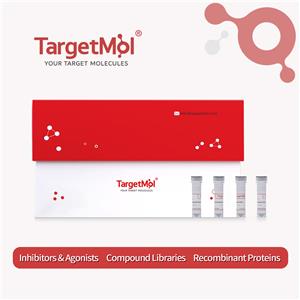
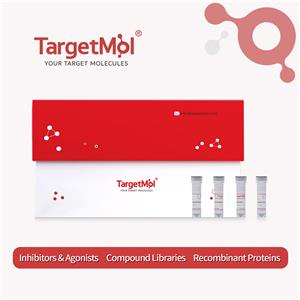
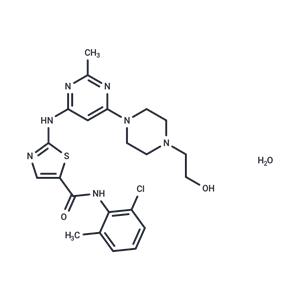
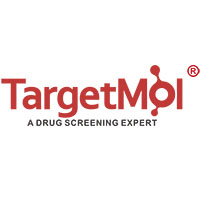
 United States
United States